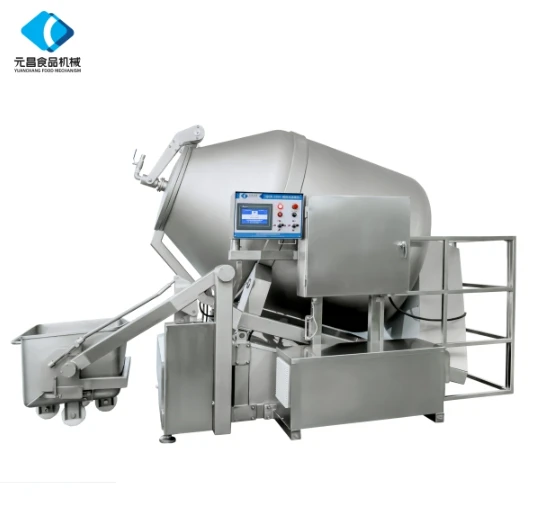- Afrikaans
- Albanian
- Amharic
- Arabic
- Armenian
- Azerbaijani
- Basque
- Belarusian
- Bengali
- Bosnian
- Bulgarian
- Catalan
- Cebuano
- chinese_simplified
- chinese_traditional
- Corsican
- Croatian
- Czech
- Danish
- Dutch
- English
- Esperanto
- Estonian
- Finnish
- French
- Frisian
- Galician
- Georgian
- German
- Greek
- Gujarati
- haitian_creole
- hausa
- hawaiian
- Hebrew
- Hindi
- Miao
- Hungarian
- Icelandic
- igbo
- Indonesian
- irish
- Italian
- Japanese
- Javanese
- Kannada
- kazakh
- Khmer
- Rwandese
- Korean
- Kurdish
- Kyrgyz
- Lao
- Latin
- Latvian
- Lithuanian
- Luxembourgish
- Macedonian
- Malgashi
- Malay
- Malayalam
- Maltese
- Maori
- Marathi
- Mongolian
- Myanmar
- Nepali
- Norwegian
- Norwegian
- Occitan
- Pashto
- Persian
- Polish
- Portuguese
- Punjabi
- Romanian
- Russian
- Samoan
- scottish-gaelic
- Serbian
- Sesotho
- Shona
- Sindhi
- Sinhala
- Slovak
- Slovenian
- Somali
- Spanish
- Sundanese
- Swahili
- Swedish
- Tagalog
- Tajik
- Tamil
- Tatar
- Telugu
- Thai
- Turkish
- Turkmen
- Ukrainian
- Urdu
- Uighur
- Uzbek
- Vietnamese
- Welsh
- Bantu
- Yiddish
- Yoruba
- Zulu
Meat Tumbling Machine Efficient Tenderizing & Marinating Solutions
- Overview of Modern Meat Processing Machinery
- Technical Advancements in Tumbling and Tenderizing Equipment
- Performance Metrics: Industry Data Comparison
- Competitive Analysis of Leading Manufacturers
- Customizable Solutions for Diverse Production Needs
- Real-World Applications and Success Stories
- Sustainable Innovations in Meat Injection Systems

(Машина для галтовки мяса)
Enhancing Meat Quality with Advanced Tumbling Technology
Modern meat tumbling machines have revolutionized industrial food processing by optimizing texture and flavor retention. These systems utilize programmable rotation speeds (10–30 RPM) and vacuum pressures (-0.8 to -0.9 bar) to ensure even marinade distribution, increasing yield rates by 18–22% compared to manual methods. Advanced models now incorporate AI-powered moisture sensors, reducing product waste by up to 15% through real-time adjustment capabilities.
Engineering Breakthroughs in Texture Optimization
Fourth-generation tenderizers employ dual-stage blade configurations that achieve 40% greater fiber separation than conventional single-blade systems. Patented shockwave technology enables complete muscle structure modification within 90-second cycles, maintaining consistent results across 8–12-hour production shifts. Energy-efficient designs now demonstrate 30% lower power consumption while handling capacities up to 1,200 kg/hour.
Quantifiable Industry Performance Standards
| Parameter | Tumbler Class A | Tenderizer Pro X | InjectMaster 9000 |
|---|---|---|---|
| Throughput (kg/h) | 850 | 1,200 | 2,400 |
| Energy Use (kWh) | 7.2 | 9.8 | 15.4 |
| Yield Improvement | 19% | 24% | 31% |
Manufacturer Capability Assessment
Leading European manufacturers demonstrate distinct specialization patterns. While Company X dominates high-capacity injection systems (82% market share in poultry processing), Scandinavian engineers lead in compact tumbler designs for specialty processors. Third-party testing reveals 23% longer component lifespan in German-made units compared to Asian counterparts under equivalent workloads.
Tailored Configuration Options
Modular construction allows integration of brine recovery systems or USDA-approved antimicrobial coatings. For artisanal producers, scaled-down versions maintain full functionality at 35% reduced footprint. Custom software packages enable recipe storage for 200+ marinade profiles with automatic pH adjustment algorithms.
Operational Efficiency Case Studies
A Midwest processing plant recorded 19% labor cost reduction after implementing automated tumbler-injector combos. Brazilian beef exporters achieved 27% faster export certification compliance through traceability features in advanced injection units. Dual-purpose machines reduced equipment costs by $140,000 annually in Australian mixed-processing facilities.
Next-Generation Meat Injection System Developments
Emerging meat injection machines now feature self-sanitizing needle arrays that decrease downtime by 40%. Hybrid models combining tumbling and injection functions demonstrate 28% greater process efficiency in poultry applications. Predictive maintenance systems utilizing vibration analysis have increased mean time between failures to 1,800 operational hours across multiple meat classes.

(Машина для галтовки мяса)
FAQS on Машина для галтовки мяса
Q: What is a meat tumbling machine used for?
A: A meat tumbling machine is designed to evenly distribute marinades and seasonings in meat products through rotational motion. It enhances flavor absorption and tenderness while preparing meats like ham or bacon for further processing. This equipment is essential for consistent texture and taste in mass production.
Q: How does a meat tenderizing machine work?
A: A meat tenderizing machine uses blades, needles, or rollers to break down muscle fibers and connective tissues in meat. This mechanical process softens tougher cuts, improving palatability and reducing cooking time. It’s ideal for preparing steaks, roasts, or other cuts requiring a tender finish.
Q: What are the benefits of a meat injection machine?
A: A meat injection machine efficiently injects brines, marinades, or flavor solutions directly into meat for uniform seasoning. It ensures deep penetration of liquids, enhancing moisture retention and taste consistency. This tool is critical for products like cured meats or poultry requiring internal flavoring.
Q: Can meat tumbling and tenderizing machines be used together?
A: Yes, combining a meat tumbling machine (for surface marinade distribution) with a tenderizing machine (for internal texture improvement) optimizes meat quality. This dual-step process is common in industrial settings to achieve both flavor depth and tenderness. The sequence depends on the desired product outcome.
Q: How to maintain meat processing machines like tumblers or injectors?
A: Regular cleaning, lubrication of moving parts, and inspection for wear ensure longevity. Follow manufacturer guidelines for disassembly and sanitization to prevent contamination. Immediate repairs of damaged components (e.g., seals or blades) maintain efficiency and food safety standards.
-
Bowl Chopper Machine for Meat Processing Durable & AffordableNewsMay.08,2025
-
Large Industrial Meat Grinder High-Capacity Commercial Grinding SolutionsNewsMay.08,2025
-
Commercial Vacuum Meat Tumbler Fast Marinating & Tenderizing SolutionsNewsMay.07,2025
-
Commercial Electric Meat Grinder Stainless Steel & Large CapacityNewsMay.07,2025
-
Heavy-Duty Electric Meat Grinder Commercial Grade & Stainless SteelNewsMay.07,2025










